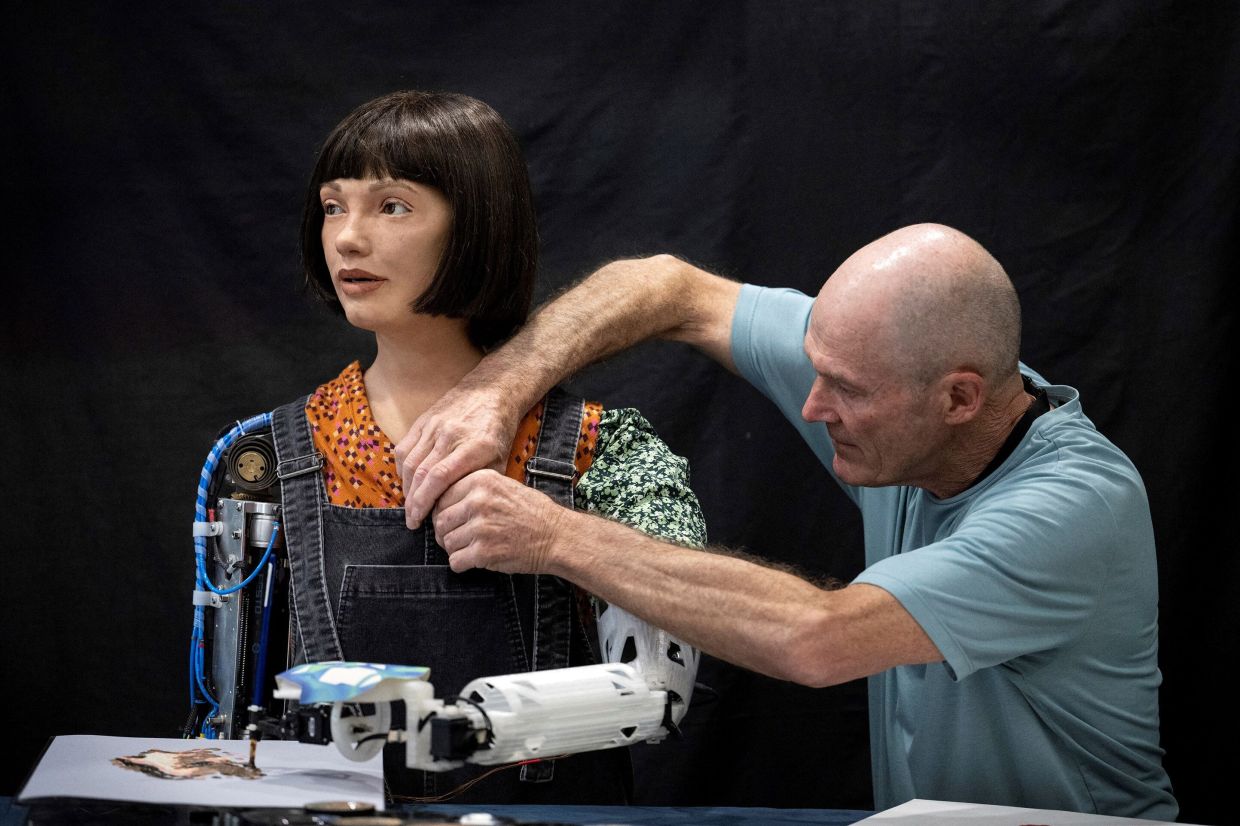
Biohybrid robots work by combining biological components like muscles, plant material, and even fungi with non-biological materials.

Cyborg cockroaches are creeping onto the scene as a surprising alternative for challenging tasks in risky locations.

These robots can flow around obstacles before hardening into weight-bearing tools that push, throw, twist objects like a wrench—and bear up to 150 pounds of weight.

Even highly realistic androids can cause unease when their facial expressions lack emotional consistency.

Researchers have found a way to bind engineered skin tissue to the complex forms of humanoid robots. This brings with it potential benefits to robotic platforms such as increased mobility, self-healing abilities, etc.

Researchers have created a new class of robots that can shift between solid and liquid forms on demand. In a series of tests, these new bots could move and change shape to run obstacle courses, carry objects, or even escape from a jail.

Dutch researchers discovered a new process that uses fuel to control non-living materials, similar to what living cells do. The discovery is a step towards soft robotics; soft machines that can sense what is happening in their environment.

Engineered Arts, a robot maker based in the U.K., is showing off its latest creation at this year's CES 2022. Called Ameca, the robot is able to display what appears to be the most human-like facial expressions by a robot to date.
Japanese scientists have created a robot that can "feel" pain. Scientists hope that the pain sensors will help robots to develop empathy for humans and to act as compassionate companions.

A remarkable combination of artificial intelligence (AI) and biology has produced the world’s first “living robots”. Xenobots are less than 1 millimeter long and are made of 500-1,000 living cells. Using their own cellular energy, they can live up to 10 days.

There’s a strong global convergence towards five ethical principles, including transparency, justice and fairness, non-maleficence, responsibility, and privacy.
As well as being skillfull, the SpotMini is strong, as demonstrated in Boston Dynamics' new video. Together, a powerful group of 10 K9s drags a huge truck across the ground.

If we are going to make machines with human psychological capacities, we should prepare for the possibility that they may become sentient. How then will they react to our behaviour towards them?
MIT'S new mini cheetah robot is the first four-legged robot to do a backflip. At only 20 pounds the limber quadruped can bend and swing its legs wide, enabling it to walk either right side up or upside down.

The U.S. research team used sound waves to levitate polyethylene particles of around 1mm in diameter to see how they interact with each other in 2D in groups of six or seven.